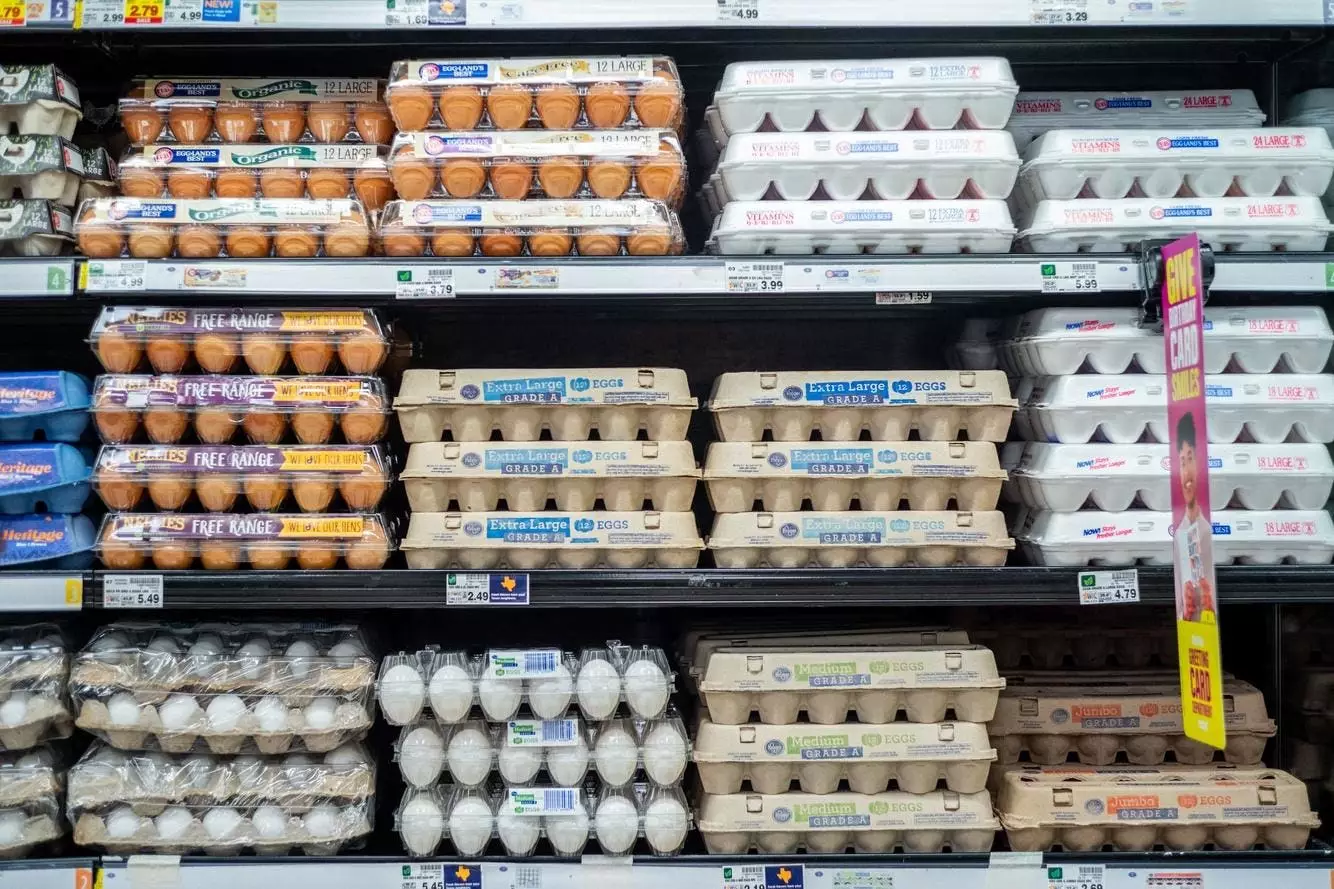For decades, eggs have occupied a revered space in the culinary landscape, regarded as a nutritious, versatile, and economical option for meals. However, approaching 2025, an unsettling transformation is underway. Economic pressures, supply limitations, and changing consumer behavior are converging, causing eggs to lose their long-standing status as a kitchen staple. As prices soar—recording a staggering 53% increase year-over-year—many consumers are reevaluating their relationship with this once-inexpensive protein source.
The sharp increase in egg prices has not merely affected grocery bills; it has instigated significant shifts in shopping patterns and food choices. Recent reports indicate that the rise in costs is causing approximately 55% of shoppers to encounter empty shelves, and an alarming 40% choosing to forgo purchasing eggs altogether due to unaffordable pricing. Among those who opt for alternatives, options like oatmeal, dairy products, and plant-based substitutes are gaining traction. Others, however, are pursuing higher-end options, viewing eggs not just as a dietary necessity but as an investment in quality.
As consumer psychology shifts, eggs have become less of a staple and more of a luxury commodity. Premium options, including organic and free-range eggs, are witnessing increased demand as certain segments of the market, such as Gen Z and Millennials, are willing to navigate higher prices in pursuit of perceived quality and ethical sourcing. This divergence illustrates a fundamental shift in consumer values, emphasizing the role of ethical consumption in food choices.
Historically, the quintessential American breakfast has often featured eggs alongside bacon. However, with the dramatic rise in costs and availability issues, many households are reconsidering what constitutes breakfast. For some, this entails opting for yogurt, grains, or alternative proteins instead of traditional egg dishes. This pivot could have far-reaching implications for food companies and suppliers as more consumers gravitate toward non-egg-based meals.
Interestingly, as eggs become scarce, there is also an observable trend toward takeout meals for breakfast. The preference for convenience in the face of scarcity reflects broader changes in consumer habits, shifting the landscape away from traditional home-cooked breakfasts toward pre-prepared options. This trend marks a noteworthy anomaly in a culture that has historically revered the homemade breakfast experience.
Marketers are now faced with the challenge of navigating a category that displays a wide spectrum of purchasing behavior. From those increasingly inclined to prioritize quality by investing in premium selections to the segment of consumers who seek affordable alternatives, the diversity of responses reveals a nuanced landscape. Store brand eggs are now leading sales, with major retailers like Walmart, Aldi, and Costco dominating this category. However, disparate purchasing limits also exist, as different demographic groups exhibit distinct shopping tendencies; for instance, low-income households may set prices below $4, while urban or affluent individuals might gladly pay over $5 per dozen.
The new egg economy presents a clear conundrum: While affordability remains a concern, personal values surrounding ethics, health, and quality are becoming significant influencers of buying decisions. The happily naive days when eggs were purely an economic staple may vanish if price trends continue, pushing them toward luxury status.
The current state of the egg market serves as a microcosm reflecting broader socio-economic trends. As history has shown, plenty of kitchen staples—from butter to bread—have transitioned from daily necessities to premium products. Should egg inflation persist, we may witness several outcomes: a continued surge in demand for bulk purchases, adaptation to plant-based diets, and a greater emphasis on premium egg products becoming the norm.
Eggs, once taken for granted, are undergoing a metamorphosis in their role within American kitchens. Inflation and scarcity are prompting a cultural reassessment of their value, forcing consumers to reconsider not just how they shop for eggs, but also their cooking practices and dietary preferences. As we progress toward 2025 and beyond, it will be fascinating to observe whether eggs reclaim their former status or evolve into a more exclusive staple defined by choice rather than necessity.

